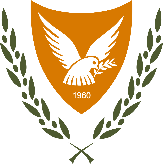Syrian identity in the Greco-Roman world / Nathanael J. Andrade..
Τύπος υλικού: ΚείμενοΣειρά: Greek culture in the Roman worldΛεπτομέρειες δημοσίευσης: Cambridge: Cambridge University Press, 2013. Περιγραφή: xxiii, 412 p. : ills, maps ; 24 cmISBN:
ΚείμενοΣειρά: Greek culture in the Roman worldΛεπτομέρειες δημοσίευσης: Cambridge: Cambridge University Press, 2013. Περιγραφή: xxiii, 412 p. : ills, maps ; 24 cmISBN: - 9781107012059
- To 1500
- Identity (Psychology) -- History -- To 1500. -- Syria
- Group identity -- History -- History -- To 1500. -- Syria
- Civilization -- Greek influences
- Ancient Near East ; Ethnic studies
- Ancient Rome ; Syria
- Syria -- History -- 333 B.C. to 635 A.D
- Syria -- Civilization -- Greek influences
- Syria -- Civilization -- Roman influences
- Syria
| Τύπος τεκμηρίου | Τρέχουσα βιβλιοθήκη | Κατάσταση | Γραμμοκώδικας | |
|---|---|---|---|---|
 Books
Books
|
Βιβλιοθήκη Τμήματος Αρχαιοτήτων = Department of Antiquities Library | Διαθέσιμο | DAL00020154 |
Nathanael J. Andrade is an Assistant Professor in the Department of History at the University of Oregon.
Based on the author's doctoral dissertation (Univ. of Mchigan)
Includes bibliographical references and index.
Introduction. Part I. Greek Poleis and the Syrian ethnos (second century BCE- first century CE) --1. Antiochus IV and the limits of Greekness under the Seleucids (175-63 BCE) --2. The theater of the frontier : local performance, Roman rule (63-31 BCE) --3. Converging paths : Syrian Greeks of the Roman near East (31 BCE-CE 73) -- Part II. Greek Collectives in Syria (first-third centuries CE) --4. The Syrian ethnos' Greek cities : dispositions and hegemonies (first-third centuries CE) --5. Cities of imperial frontiers (first-third centuries CE) --6. Hadrian and Palmyra : contrasting visions of Greekness (first-third centuries CE) --7. Dura-Europos : changing paradigms for civic Greekness --Part III. Imitation Greeks : being Greek and being other (second and third centuries CE) --8. Greeks write Syria : performance and the signification of Greekness --9. The theater of empire : Lucian, cultural performance, and Roman rule --10. Syria writes back : Lucian's On the Syrian Goddess --11. The ascendency of Syrian Greekness and Romanness -- Conclusion : a world restored.
"By engaging with recent developments in the study of empires, this book examines how inhabitants of Roman imperial Syria reinvented expressions and experiences of Greek, Roman and Syrian identification. It demonstrates how the organization of Greek communities and a peer polity network extending citizenship to ethnic Syrians generated new semiotic frameworks for the performance of Greekness and Syrianness. Within these, Syria's inhabitants reoriented and interwove idioms of diverse cultural origins, including those from the Near East, to express Greek, Roman and Syrian identifications in innovative and complex ways. While exploring a vast array of written and material sources, the book thus posits that Greekness and Syrianness were constantly shifting and transforming categories, and it critiques many assumptions that govern how scholars of antiquity often conceive of Roman imperial Greek identity, ethnicity and culture in the Roman Near East, and processes of 'hybridity' or similar concepts"-- By engaging with recent developments in the study of empires, this book examines how inhabitants of Roman imperial Syria reinvented expressions and experiences of Greek, Roman and Syrian identification. It demonstrates how the organization of Greek communities and a peer polity network extending citizenship to ethnic Syrians generated new semiotic frameworks for the performance of Greekness and Syrianness. Within these, Syria's inhabitants reoriented and interwove idioms of diverse cultural origins, including those from the Near East, to express Greek, Roman and Syrian identifications in innovative and complex ways. While exploring a vast array of written and material sources, the book thus posits that Greekness and Syrianness were constantly shifting and transforming categories, and it critiques many assumptions that govern how scholars of antiquity often conceive of Roman imperial Greek identity, ethnicity and culture in the Roman Near East, and processes of 'hybridity' or similar concepts. Review: 'An important book ... an essential point of reference for anyone reflecting on what it meant to be 'Greek' in the ancient world.' The Times Literary Supplement '... [this] book is of great importance in both its method and its content for the study of Roman Syria and the surrounding region from the Seleucid period through the early Roman Empire. Scholars will benefit a great deal from Andrade's impressive contribution to, and reshaping of, these ongoing discussions.' Christine Shepardson, Bryn Mawr Classical Review
Δεν υπάρχουν σχόλια για αυτό τον τίτλο.

